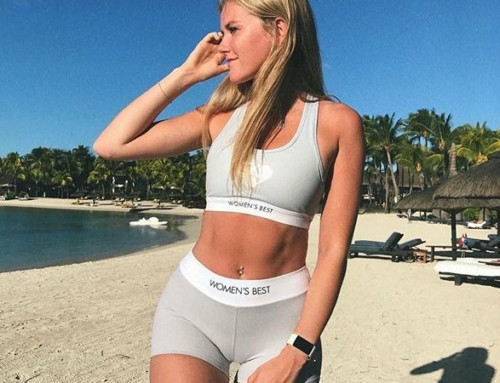About 150 NBC personnel are already on the ground in Rio as concerns grow over the safety and logistical pressures on the Games.
There has been no shortage of negative headlines heading into NBC’s coverage of 2016 Rio Summer Games, the first-ever Olympics in South America. The stories from Rio have been eye-popping: dismembered body parts washing up on Copacabana beach, mere meters from the Olympic Beach Volleyball Arena; a shootout at a hospital; new data revealing that muggings are at an 11-year high; and police, fire and hospital personnel on strike amid budget shortfalls. One such protest at Rio’s airport had police officers holding a banner that read: “Welcome to Hell: police and firefighters don’t get paid, whoever comes to Rio de Janeiro will not be safe.”
Rio’s acting governor, Francisco Dornelles last month declared a state of financial disaster and warned that the Games could be a “big failure” if Rio does not receive federal funds. Dornelles’ says he needs for Olympic security. The central government, in an effort reassure visitors, has deployed 85,000 security personnel — with helicopters and naval vessels — to enforce order in and around the Olympic venues.
But will the problems in Rio affect NBC’s ability to cover the Games?
“Only a major disaster that disrupts the Games, forces changes in scheduling or even worse, cancelation of events would hurt NBC,” said Neal Pilson, former president of CBS Sports.
Mike Tirico, the longtime ESPN announcer who recently joined NBC Sports and will anchor NBC’s daytime Olympics coverage, notes that there were similar concerns, though not ZIka, in the run-up to ESPN’s coverage the 2014 World Cup in Brazil.
There were “concerns about security, concerns about infrastructure,” Tirico told THR. “And the reality of a city that has opulence in one spot and a very short distance away families living in favelas and the moral question of spending for a global event. As we got closer to the game there was a very pull-it-together spirit from the Brazilians. They don’t want their country to look bad on the global stage. They’re very proud of their heritage and their country.”
An NBC Sports representative tells THR that with respect to security and financial support, they have been “assured that there is no risk to the delivery of the commitments that have been promised to secure the Games.”
The sports division currently has 150 on the ground in Rio; that number will swell to about 2,600 once the network is fully staffed. All employees have been given detailed tutorials on local customs, regulations and information on how to remain safe.
“The safety and security of our personnel is always our #1 priority at a Games,” said a network spokesperson, adding that NBC Sports relies on “advice and instructions from the U.S. State Department’s Overseas Security Advisory Council (OSAC) and the NBC Corporate Security department.”
“The London games were hugely successful,” said an executive at a rival news division. “I actually wouldn’t expect the problems down there to have much of an impact on viewing.”
Of course, negative headlines are nothing new in the run-up to the Olympics. Air pollution was such a problem during the 2008 Summer Olympics in Beijing that many athletes were photographed arriving at the Beijing’s airport with masks over their noses and mouths. And the 2014 Winter Olympics in Sochi, Russia also were plagued by security concerns while the balmy weather in the Black Sea resort city meant Olympic organizers had to import snow for the skiing events. But the problems facing Brazil already have had an impact.
Zika fears have been cited by several athletes who have declined to participate in the Games. Many of them are men and the majority are golfers, who are more at risk for mosquito bites than others since they must spend several hours outside in verdant locations. Top-ranked Jason Day of Australia and Ireland’s Rory McIlroy (No. 4) both cited Zika as their reason for skipping Rio. So did Vijay Singh, Lee-Ann Pace and Graeme McDowell. (A June 29 study published in respected medical journal The Lancet published a new study suggesting that infants who are not born with microcephaly could still have developmental delays linked to Zika.)
Golf returns to the Olympics for the first time in 112 years. And it will be an opportunity for NBCUniversal-owned Golf Channel — which will air 115 hours of coverage overall — to showcase its talent including David Feherty, who can now appear on the broadcast network after the end of his CBS deal last year.
Golfer’s aren’t the only athletes concerned. British long jumper Greg Rutherford, who won gold in London, is going to Rio but his wife and young son will not make the trip and Rutherford has said he will freeze a sample of his sperm as a precautionary measure.
At this point, a handful of NBCUniversal employees have opted out of going to Rio, including Today anchor Savannah Guthrie who is pregnant with her second child. But Noah Oppenheim, NBC News senior vp and executive in charge of Today, told THR earlier this month that Zika has “not been a source of very much angst” at the news division. “We’ve created a transparent culture here where people feel very comfortable raising a hand and saying, ‘You know what? I’d rather not make this trip.’”
There is a lot at stake for NBC Sports. The Rio Games are part of NBC Sports chief Mark Lazarus’ $4.38 billion four-Games package that extends to 2020. The Rio Games will be the most live games in decades owing to the advantageous time zone; Rio is one hour ahead of the U.S. Eastern Time. The company will present 4,500 hours of coverage streaming on NBCOlympics.com and the NBC Sports app. Advertising for the games surpassed the critical $1 billion mark – which includes national broadcast, cable and digital – back in March, four months before the network hit that milestone for the 2012 London Summer Games. The network’s 18 days of coverage begins on Wednesday, August 3, two days before the Opening Ceremony, with women’s soccer, and concludes on Sunday, August 21, the final day of the Games. On most days, NBCSN will televise 16 hours of coverage, from 8 a.m. to midnight. NBCUniversal networks will air 6,755 hours of Olympics coverage, with more than 260 hours on NBC, 330 hours on NBC Sports Network, 110.5 hours on USA, 94.5 hours on Bravo, 78.5 hours on MSNBC and 42 hours on CNBC.
Asked if they are concerned that more athletes pulling out will dampen viewers’ enthusiasm for the Games, NBC Sports offered this statement: “We can’t wait to hit the ground in Rio and deliver to the American audience an incredible Olympic Games.”
Source: Hollywood Reporter – Top Story





